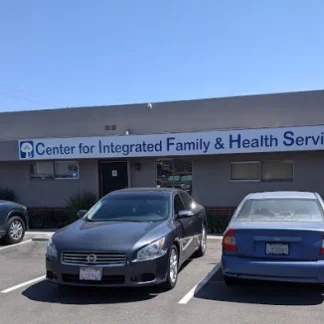David and Margaret - Family Services
David & Margaret Youth and Family Services, located in La Verne, California,...
Center for Integrated Family Health - Sober Solutions offers alcohol and drug rehab services to men and women seeking recovery in the Covina, California area. They believe addiction is a family disease and encourage family involvement.
Center for Integrated Family Health – Sober Solutions focuses on providing a person-centered approach to transformation. Their services are offered on an outpatient basis.
Outpatient services are best for those who need support but who do not need around-the-clock care and monitoring in order to make improvements. Individual therapy, group therapy, family therapy, couples counseling, evidence-based treatment interventions, and referral services are available. Staff also help clients develop a relapse-prevention plan.
Center for Integrated Family Health – Sober Solutions accepts most insurance plans, including Amerigroup, Anthem, Magellan, Wellmark, Beacon, Cigna, ComPsych, HCSC, TRICARE, United Healthcare, and Blue Cross Blue Shield. Out of network benefits may vary, so it’s important to verify coverage with your provider prior to starting treatment.
Contact us for more information: (626) 966-1577

Connect with Center for Integrated Family Health - Sober Solutions by calling their admissions team directly.
(626) 966-1577 Website Get DirectionsResearch clearly demonstrates that recovery is far more successful and sustainable when loved ones like family members participate in rehab and substance abuse treatment. Genetic factors may be at play when it comes to drug and alcohol addiction, as well as mental health issues. Family dynamics often play a critical role in addiction triggers, and if properly educated, family members can be a strong source of support when it comes to rehabilitation.
Group therapy is any therapeutic work that happens in a group (not one-on-one). There are a number of different group therapy modalities, including support groups, experiential therapy, psycho-education, and more. Group therapy involves treatment as well as processing interaction between group members.
Trauma therapy addresses traumatic incidents from a client's past that are likely affecting their present-day experience. Trauma is often one of the primary triggers and potential causes of addiction, and can stem from child sexual abuse, domestic violence, having a parent with a mental illness, losing one or both parents at a young age, teenage or adult sexual assault, or any number of other factors. The purpose of trauma therapy is to allow a patient to process trauma and move through and past it, with the help of trained and compassionate mental health professionals.
Group therapy is any therapeutic work that happens in a group (not one-on-one). There are a number of different group therapy modalities, including support groups, experiential therapy, psycho-education, and more. Group therapy involves treatment as well as processing interaction between group members.
Trauma therapy addresses traumatic incidents from a client's past that are likely affecting their present-day experience. Trauma is often one of the primary triggers and potential causes of addiction, and can stem from child sexual abuse, domestic violence, having a parent with a mental illness, losing one or both parents at a young age, teenage or adult sexual assault, or any number of other factors. The purpose of trauma therapy is to allow a patient to process trauma and move through and past it, with the help of trained and compassionate mental health professionals.
Trauma therapy addresses traumatic incidents from a client's past that are likely affecting their present-day experience. Trauma is often one of the primary triggers and potential causes of addiction, and can stem from child sexual abuse, domestic violence, having a parent with a mental illness, losing one or both parents at a young age, teenage or adult sexual assault, or any number of other factors. The purpose of trauma therapy is to allow a patient to process trauma and move through and past it, with the help of trained and compassionate mental health professionals.
David & Margaret Youth and Family Services, located in La Verne, California,...
Second Chance for Teens and Adults, located in Glendora, California, offers holi...
Glendora Oaks Behavioral Health Hospital provides mental health care and addicti...
Behavioral Health Services (BHS) - American Recovery Center, located in Pomona, ...